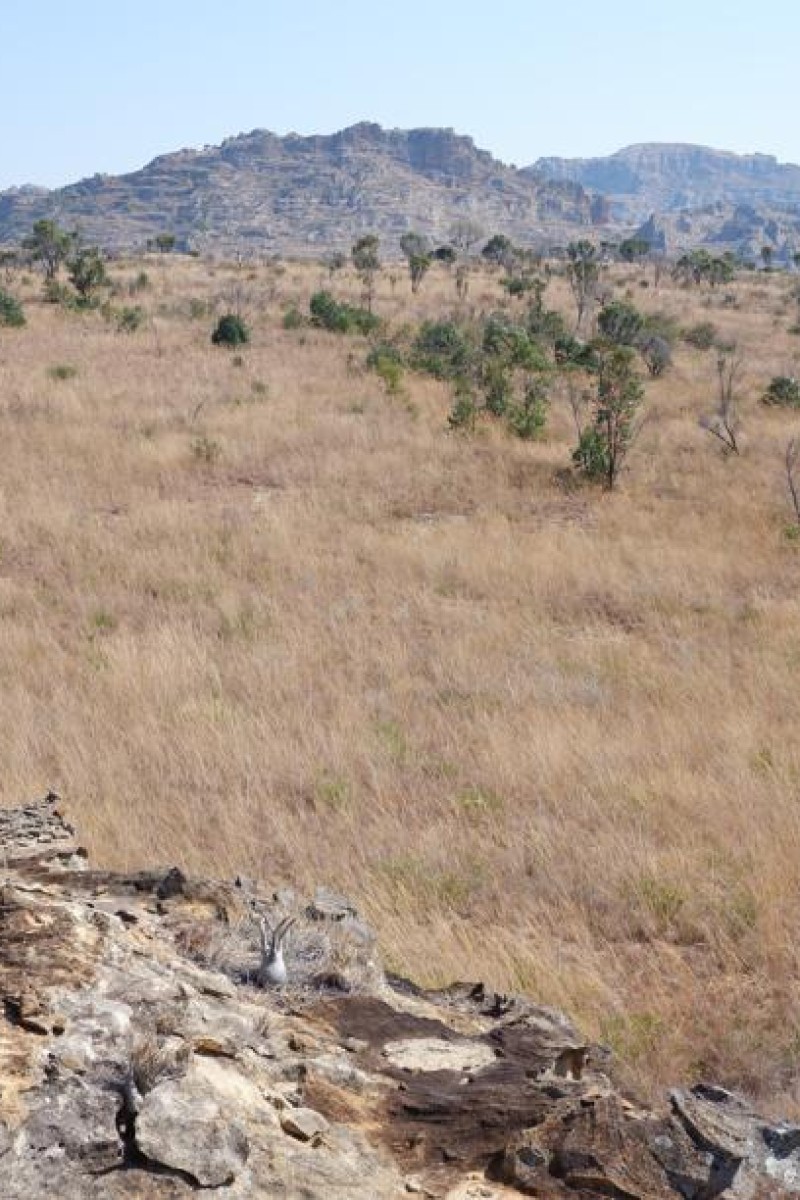
Climate change and human action: what these Hong Kong students learned in Madagascar
The teens took a life-changing trip to the African island and learned about the impact that economics has on global warming
 A trip to Madagascar allowed students to learn about the island's biodiversity and people.
A trip to Madagascar allowed students to learn about the island's biodiversity and people.Madagascar is not just an island in the Indian Ocean or a fun film series – it’s also one of the most unique environments in the world, known for its significant biodiversity. Twenty students from Hong Kong went to the tropical island in August to see the impact human activity and global warming are having on its ecology, on a field trip arranged by the charitable organisation, Yan Oi Tong.
Young Post spoke to five of the students who shared their experiences of the 15-day trip, where they visited many of the island’s national parks and saw some of the island’s wildlife. The visit was also an opportunity for the students to learn about the island’s people.
What struck the students most was the extent of deforestation they saw as their plane prepared to land. It’s estimated that more than 90 per cent of forests have been lost to human activity.
11-year-old climate activist asks, why worry about development if there's no future?
“It was all just dirt,” said Samuel Ho Chak-lam of St Paul’s Co-educational College. “The only places where we saw actual dense tree coverage were the country parks we visited; the rest was bare.”
Seeing how islanders lived helped the students understand why this environmental damage happened, and how economics matters in developing countries.
Environmental expert Dr Sung Yik-hei, who led the group, noted that environmental issues in Hong Kong are not the same as those faced by most people in Madagascar. “The real problem people face is that they need money to live, so they might cut down trees to farm or make pasture for cattle,” he said. “In Hong Kong, the conflict might be with land developers, and not people’s survival.”
So, while Madagascar is a biodiversity hotspot, a very real problem faced by its government and people is the importance of economic development to a nation where 80 per cent of the community rely on farming to survive, and almost 70 per cent of the population live in poverty, on one US dollar a day.
Sing Yin Secondary School student Michael Siu Ko-chi spoke to local environmental NGOs who said they rely on foreign funding, which was limited and unstable. “People there really are poor,” he said. “It’s not realistic to tell them to stop chopping down trees for the sake of conservation when they need to feed themselves.”
Although Madagascar and Hong Kong face different problems, there are still some similarities, such as littering in nature parks.
Climate change can be stopped by focusing on poverty, says one Danish economist
“I saw a pygmy monkey searching through an uncovered garbage bin and it had a plastic glove in its mouth. I was worried it was going to eat it,” said Leung Lok-yan of HKMLC Queen Maud Secondary School.
One solution to a lack of funding for conservation is eco-tourism, and the group now realises how important education is to being a good ecotourist.
“Here [in Hong Kong] we have tours to find pink dolphins, but the boats make noise and people’s actions, such as trying to touch the dolphins, causes disturbance,” said Michael. “We shouldn’t go there with the mindset of ‘we have to see them’; instead, we should create minimal disturbance.”
Wealthy nations can also insulate themselves from the consequences of climate change. “Developed economies emit carbon dioxide but the consequences are borne by less developed countries,” said Michael.
The trip has sparked greater interest about caring for the environment. Since returning to Hong Kong, Jessica Cheung Sum-yuet of Christian and Missionary Alliance Sun Kei Secondary School is keeping up with environmental news and following environment NGOs on Instagram. “I’ve made lifestyle changes like eating less fast food, where they use Brazilian meat, and starting to recycle,” she said.
The group plans to spread their message to their families and schoolmates. “We have a responsibility to fix these issues and we need to raise awareness here in Hong Kong,” said Jessica.
